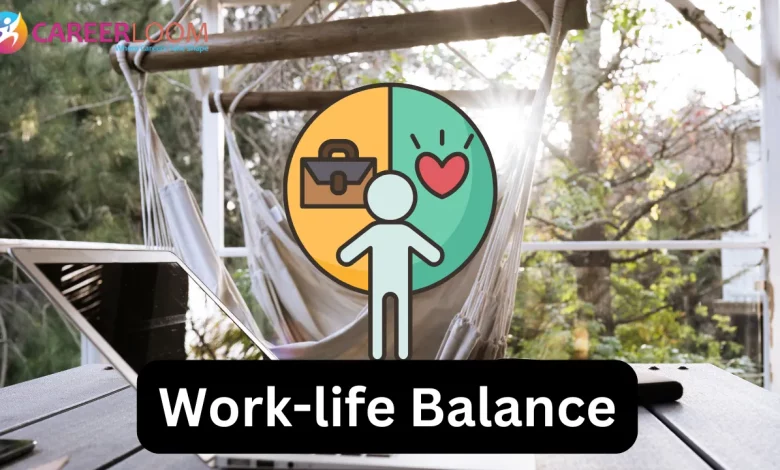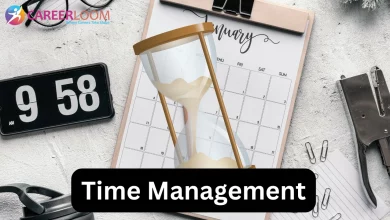Achieving Work-Life Balance: Strategies for Personal and Professional Fulfillment

In today’s fast-paced world, the idea of achieving a balanced life feels almost like a myth. Between deadlines at work, family obligations, and the never-ending demands of modern life, it often seems impossible to juggle it all. But here’s the thing—work-life balance isn’t about perfection. It’s about finding a rhythm that works for you, learning to prioritize what’s important, and giving yourself the space to breathe.
So, how do we actually achieve this elusive balance? The key lies in intentionality, setting boundaries, and making conscious decisions that nurture both your professional and personal well-being. It’s not a destination you reach but an ongoing process of reevaluating your commitments and creating a life that reflects your true values.
What Is Work-Life Balance and Why Does It Matter?
Work-life balance is often defined as the ability to divide your time and energy between work and personal activities in a way that promotes health, happiness, and well-being. In simpler terms, it’s about making sure your job doesn’t consume all of your time, leaving little room for family, hobbies, and self-care.
At its core, work-life balance is about quality over quantity. It’s not about how many hours you work or how many hours you spend with your loved ones, but about ensuring both sides of your life are fulfilling and that neither is neglected. Without balance, burnout creeps in. Stress levels rise, relationships suffer, and health takes a hit. Achieving balance helps to reduce stress and improve overall well-being, making you more productive at work and more present in your personal life.
How Can I Create a Better Work-Life Balance?
The trick to improving work-life balance starts with understanding that it’s not just about cutting back on work hours. It’s about creating boundaries, managing your time efficiently, and making sure you’re present in whatever you’re doing.
Start by setting clear boundaries between work and home. This could mean establishing specific work hours and making sure you disconnect from emails and tasks once your workday ends. For example, if you work from home, designate a specific area for work. When you step out of that space, mentally switch gears.
Another helpful strategy is learning to say “no” when necessary. You don’t have to accept every invitation or take on every project at work. Focus on what’s most important, and let go of the non-essential tasks that drain your energy.
Also, prioritize self-care. Whether it’s a walk in the park, reading a book, or spending time with loved ones, make sure you’re nurturing yourself outside of work. It’s not selfish to take time for yourself—it’s essential for maintaining balance.
What Are the Key Strategies for Achieving Work-Life Balance?
There are several strategies to help you achieve a healthier work-life balance, and each person’s approach will vary. Here are a few proven techniques to get you started:
- Set clear goals and priorities: Understand what matters most to you and ensure your time is aligned with these priorities. For instance, if family is your priority, schedule family time like you would a business meeting.
- Time blocking: This involves dividing your day into blocks of time dedicated to specific tasks or activities. It can help you stay focused and ensure that both work and personal tasks get the attention they deserve.
- Delegate and collaborate: Don’t be afraid to ask for help at work or at home. Share the load where possible, whether that’s delegating tasks at work or asking family members to pitch in with household duties.
- Take breaks: You need time to recharge. This might sound obvious, but it’s easy to forget when you’re deep into a project or dealing with multiple responsibilities. Scheduled breaks can actually boost productivity and improve your mood.
- Learn to say no: Saying no to extra work or social commitments that don’t serve your goals is an important skill. You don’t need to do everything for everyone.
How Does Technology Affect Work-Life Balance?
In today’s digital age, technology is a double-edged sword when it comes to work-life balance. On one hand, it allows you to work remotely, connect with colleagues across the globe, and access work emails and documents at all times. On the other hand, it can blur the lines between work and personal life, making it difficult to truly unplug.
For example, many people find themselves answering emails late at night or over the weekend, simply because their phone is always within arm’s reach. To regain control, consider turning off notifications after hours or using apps that help manage your time effectively.
Another important aspect is learning to disconnect from work emails and social media when you’re off the clock. Designate tech-free time for relaxation and meaningful connections with family and friends. Setting these boundaries will help keep your professional life from overtaking your personal space.
Can Work-Life Balance Improve Productivity?
You might think that the more hours you put into work, the more productive you will be. But in reality, working long hours without proper breaks leads to burnout and reduced productivity. It’s far more effective to focus on quality rather than quantity.
Think of it this way: when you take regular breaks and give yourself time to rest, you return to work with a clearer mind, greater creativity, and more energy. This makes you more effective during the hours you are working. In fact, studies show that employees who have a better work-life balance are less likely to experience burnout and are more likely to stay with their employer long-term.
So, yes, work-life balance absolutely improves productivity because it helps maintain your energy levels and focus, leading to better performance in both personal and professional areas.
How Do I Maintain Work-Life Balance in Challenging Times?
Achieving work-life balance is tough enough in regular circumstances, but it can feel even more difficult during stressful or challenging times—such as during a global crisis or when facing personal or professional challenges. However, it’s precisely during these times that balance becomes even more important.
One strategy is to acknowledge that balance may look different depending on the situation. For example, if you’re going through a tough period at work or facing a family crisis, you may need to adjust your priorities. Be flexible with yourself and don’t expect perfection during difficult times. It’s okay to shift focus when necessary, but always aim to return to your core values when the situation allows.
Also, don’t be afraid to reach out for support. Whether it’s talking to a friend, family member, or professional, getting the help you need can lighten the load and give you perspective.
What Role Does Self-Care Play in Achieving Work-Life Balance?
Self-care is absolutely vital when it comes to maintaining a healthy work-life balance. In fact, it’s not just a “nice-to-have” — it’s a “must-have.” Without it, you’re at risk of burnout, exhaustion, and diminishing returns in both your personal and professional life.
Self-care doesn’t have to be extravagant or time-consuming. It could be as simple as taking a 10-minute walk after lunch, practicing mindfulness, or setting aside time each day to do something you love. The key is consistency. The more regularly you practice self-care, the better you’ll be able to handle the demands of work and life.
To ensure self-care doesn’t take a backseat to your other responsibilities, schedule it just like you would any other important meeting. This will help you make it a non-negotiable part of your routine.
Conclusion: Finding Your Balance
Achieving work-life balance is not a one-size-fits-all solution. What works for one person might not work for another, and your balance may shift depending on where you are in life. The important thing is to be intentional about how you allocate your time, set clear boundaries, and prioritize your physical and mental well-being.
While it can be challenging, it’s entirely possible to find a rhythm that allows you to succeed at work while also living a fulfilling personal life. It requires patience, self-awareness, and a commitment to your own well-being. By practicing good time management, setting boundaries, and embracing self-care, you can create a life that feels balanced, satisfying, and truly yours.


